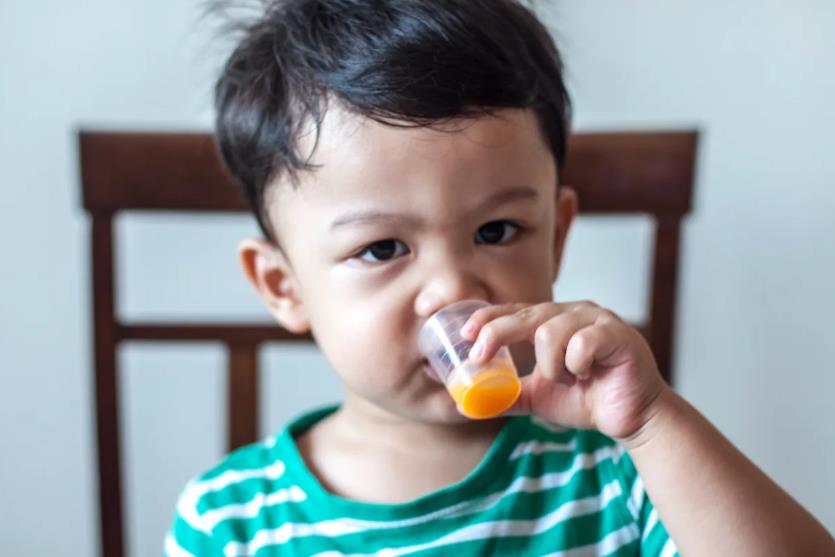Introduction
Children are naturally curious, and many are drawn to the sweet flavors of liquid medicines, which can sometimes lead to dangerous situations. As parents, it’s crucial to recognize the risks associated with this behavior and take appropriate steps to ensure the safety of your little ones. This article provides a comprehensive guide on how to prevent accidental medicine ingestion by children, offering practical tips to create a safer environment at home.
Understanding the Appeal of Medicine to Children
Liquid medicines, especially those designed for children, often come in appealing flavors like cherry, grape, or bubblegum to encourage compliance with treatment. However, this well-intentioned design can also make medicine seem like candy to a child, increasing the risk of them seeking it out when unsupervised. For many young children, the sweet taste combined with bright, colorful packaging can turn medicine into an enticing treat.
The Risks of Unsupervised Medicine Consumption
Accidental ingestion of medicine is a significant health hazard for children. Even over-the-counter medicines, when consumed in large quantities or inappropriately, can cause severe health issues, including poisoning, organ damage, or even death. Prescription medications, with their potent ingredients, pose an even higher risk. The potential for serious harm underscores the importance of keeping all medicines out of reach and out of sight of children.
Practical Tips for Preventing Accidental Ingestion
- Store Medicines Safely: The first line of defense is proper storage. Always keep medicines in their original containers with child-resistant caps and store them in a high, locked cabinet. Avoid storing any medicines in places that are easily accessible to children, such as on countertops, in purses, or on bedside tables.
- Educate Your Children: While young children may not fully understand the dangers, it’s important to start teaching them early. Explain that medicine is not candy and should only be taken when given by an adult. Reinforce this message regularly to help them understand the difference between medicine and food.
- Be Mindful of Visitor’s Belongings: Guests in your home may have medicines in their bags, coats, or luggage. Politely ask visitors to store their belongings in a safe place that is out of reach of children. Alternatively, provide a designated area where these items can be securely kept during their visit.
- Use Child-Resistant Packaging Correctly: Always ensure that child-resistant caps are secured tightly after every use. However, remember that “child-resistant” does not mean “child-proof,” so proper storage is still essential.
- Monitor Medicine Use in the Home: Keep a close eye on the medicines that are being used in your household. This includes regularly checking expiration dates and ensuring that you know exactly where each medicine is stored. If possible, maintain a list of all the medications in your home, and make sure they are accounted for.
- Dispose of Unused Medicines Properly: Expired or unused medicines should be disposed of safely to prevent any possibility of accidental ingestion. Many communities offer medicine take-back programs, or you can mix the medicine with an undesirable substance (like coffee grounds) and place it in a sealed container before disposing of it in the trash.
- Don’t Refer to Medicine as Candy: Even in an attempt to encourage a child to take their medicine, avoid referring to it as candy. This comparison can confuse young children and may lead them to seek out medicine on their own.
- Use Appropriate Dosing Tools: Always use the dosing tool that comes with the medicine, rather than kitchen spoons, to avoid accidental overdose. Store the dosing tool with the medicine and out of reach to prevent children from playing with it.
What to Do in Case of Accidental Ingestion
Despite all precautions, accidents can still happen. If you suspect your child has ingested medicine accidentally, act immediately:
- Remain Calm: Panic can cause delays. Stay as calm as possible to think clearly and act quickly.
- Call Poison Control: Contact your local poison control center immediately for guidance. In the United States, the national Poison Control Hotline is 1-800-222-1222 and operates 24/7. They can provide specific instructions based on the type and amount of medicine ingested.
- Seek Emergency Medical Help: If your child is showing symptoms of poisoning, such as difficulty breathing, unresponsiveness, or seizures, call emergency services right away. Time is of the essence in these situations.
- Bring the Medicine Container: If possible, bring the medicine container with you to the hospital or have it on hand when speaking with poison control. This will help healthcare providers identify the substance and provide appropriate treatment.
Conclusion
Preventing accidental medicine ingestion in children requires vigilance and proactive measures. By understanding the risks and implementing these safety strategies, parents can significantly reduce the likelihood of their children accessing and consuming medicine unsupervised. Always stay informed, remain cautious, and never underestimate the resourcefulness of a curious child. Creating a safe environment at home not only protects your children from immediate dangers but also teaches them lifelong lessons about safety and responsibility.
